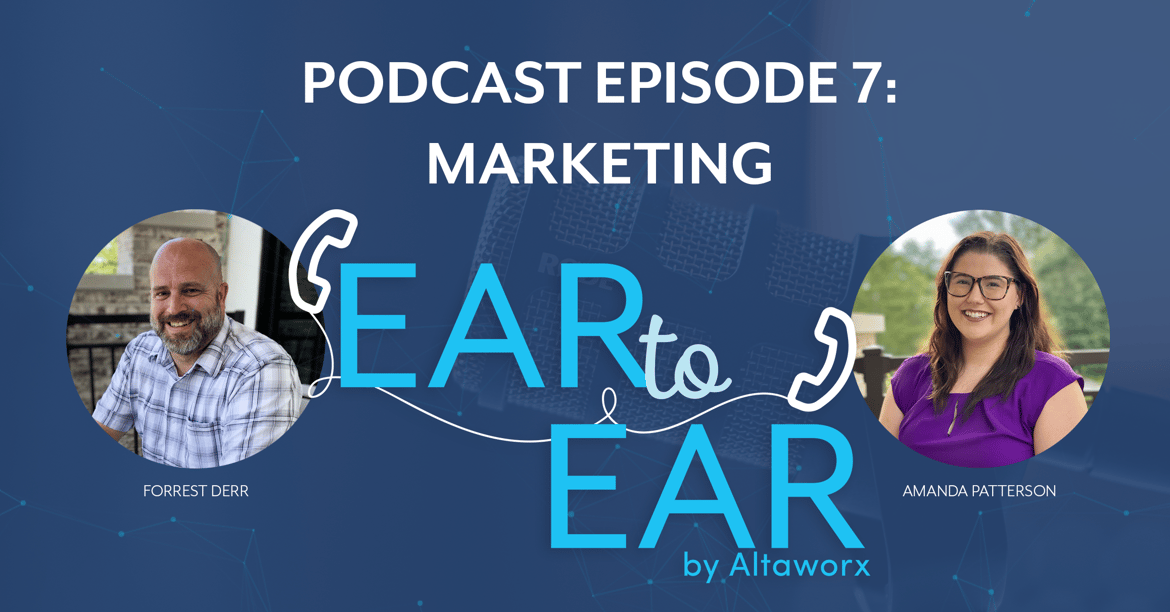Ear To Ear Podcast | EPISODE 7: Marketing with Amanda Patterson
We're back with another Ear to Ear by Altaworx podcast.
By Altaworx Marketing
Share
Dial into episode 7 with Forrest and Amanda Patterson, Marketing Coordinator at Altaworx where they discuss Marketing.
Highlights:
- Social Media
- Tradeshows
- Telecom
Learn more: www.altaworx.com
Contact us: revops@altaworx.com
Connect with Amanda Patterson on LinkedIn
Connect with Forrest Derr on LinkedIn
No video selected
Select a video type in the sidebar.































